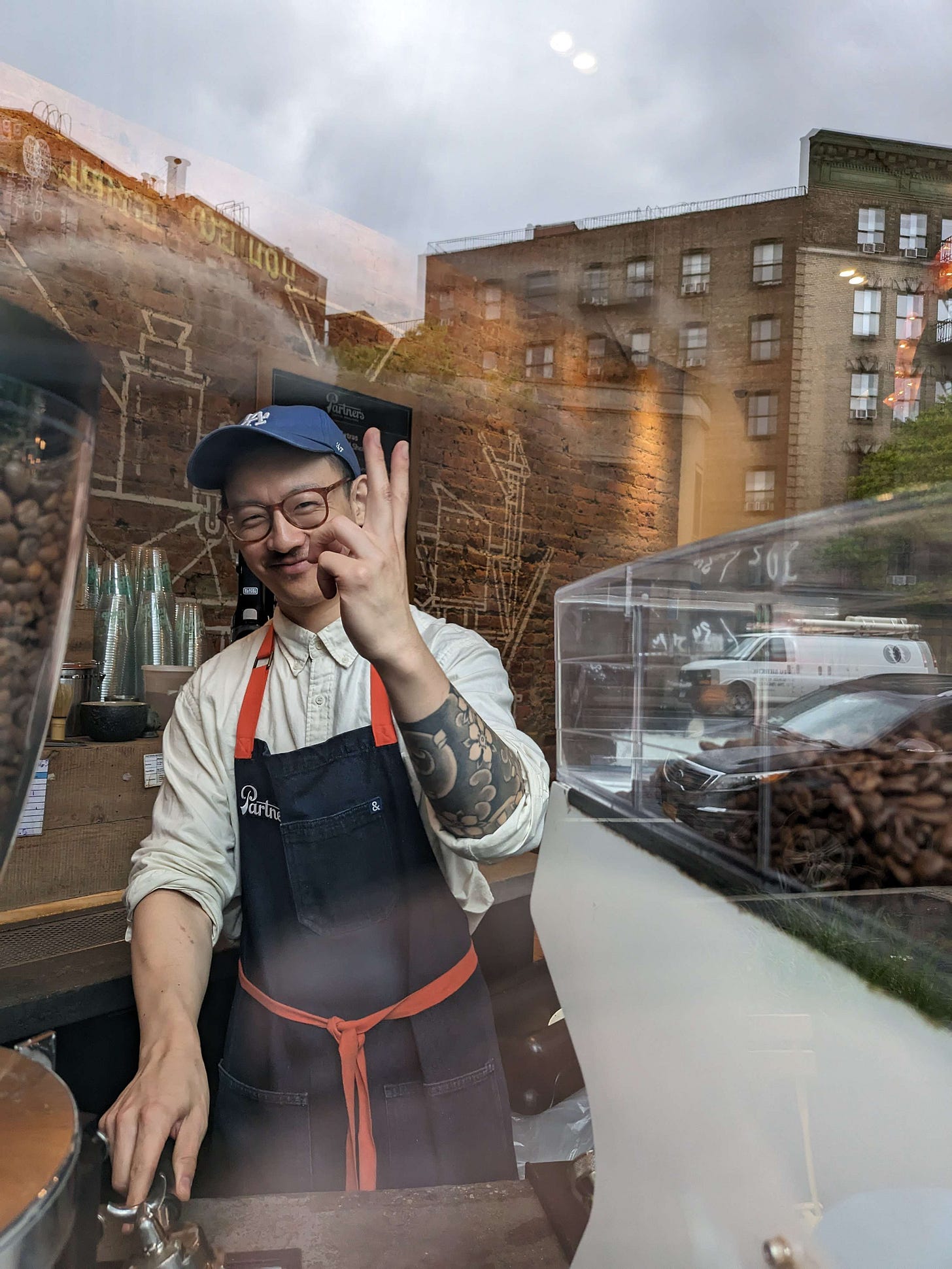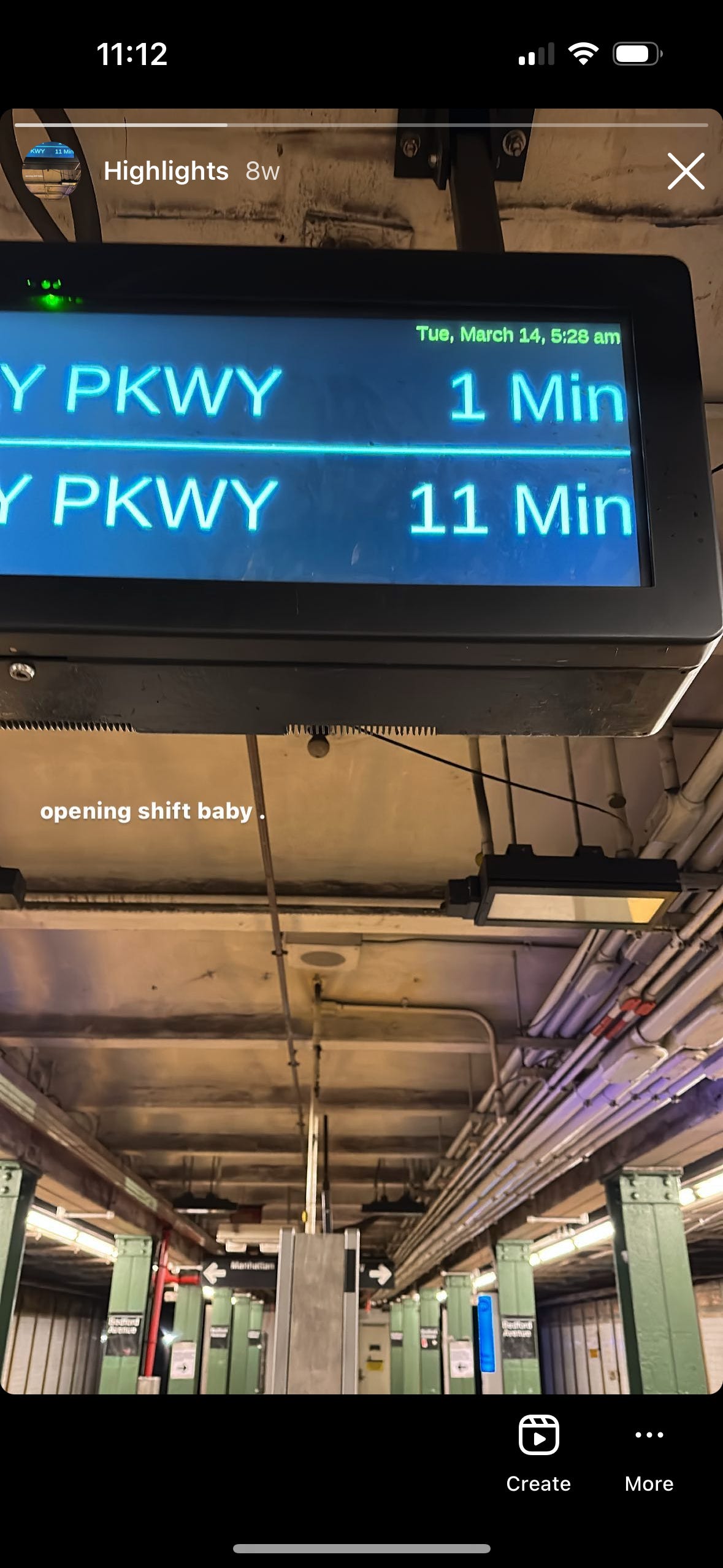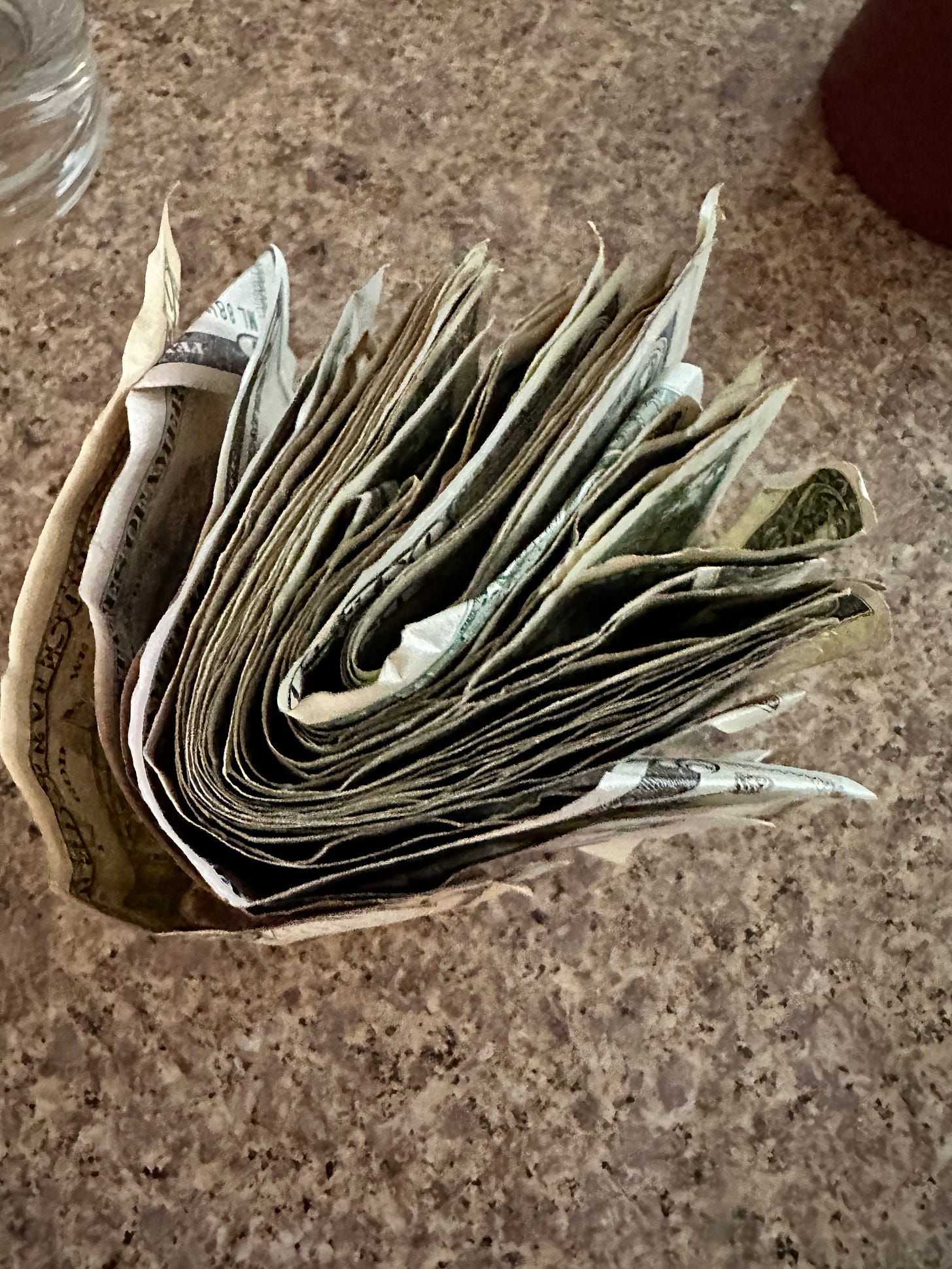Hello friends,
It's been over a month since I last posted the first of this series. For this post, I will talk more about my thoughts on the job and what I've learned.
note that this is my first ever service industry job, so some of this may be "obvious news". And I am not trying to say I'm an expert barista or anything of that sort. I'm just sharing my opinion/thoughts on my experience so far!
Communication is super important

I can best explain this point by writing a few examples. But first, some context.
So at Partners, there are usually three stations (sometimes 4 when we are super busy). They are register, espresso, and milk.
The register person is responsible for handling the orders, getting the quick non-espresso drinks (cold brew / drip coffee), as well as prepping cups for the other two stations.
The espresso person is responsible for pulling shots, handling any grinder-related tasks, brewing the batch brew whenever needed, and managing our Doordash tablet.
The milk person is responsible for the milk, packaging Doordash orders, and handing out drinks.
It's likely that these responsibilities won't be the same at other coffee shops. The way we divided up the responsibilities is based on proximity to equipment. The grinders are tucked in one corner by the espresso machine, so the espresso person is delegated to do all grinding-related tasks. The drip/cold brew dispensers are close to the register, so the register person handles those.
Now onto the examples.
When someone orders a drip coffee, they sometimes want milk. But what if the milk person is super backed up with drinks? Do you try and squeeze between the milk person to do the milk yourself? Do you wait until they finish their current task (i.e., steaming/packing orders/etc.)? No, you don't; you let the milk person know what you need and hand the drink off to them to unblock yourself so you can continue your role.
Or when you are on register, and a customer requests their newly purchased bag of beans to be grounded, do you leave the register and head to the grinder to grind the beans? No, you don't, you let the espresso person know that you need the bag ground, and you allow them to take care of it.
wait — am I doing microservices… but in real-life? am I just a microservice? #espressoservice #milkservice #registerservice
Such examples may seem trivial, but these call-outs and requests sometimes make the difference between a rocky and smooth service.
Being a barista is a really hard job
I am way more tired working as a part-time barista than working as a full-time software engineer.
Physically, it's tiring as I'm standing for 4-7 hours. The only time I'm really sitting is during my break. I've found that I need to go to the gym to stretch and work out to keep up my stamina so I can perform well on the job.
One thing that has helped is I've bought some superfeet green insoles for additional support. If you like to wear authentic vans, these soles fit nicely, and makes standing for long hours a bit more bearable.
Mentally, the job is tiring since you can't really fully check out. There will be some lull periods where you can kinda checkout, but you'll have to be able to get back into focus once a customer arrives. And at a high-volume shop like Partners, customers come in a lot, pretty much during all times of the day.
Different type of thinking
As a barista, I've found that I was doing way more shallow and quick thinking than when I was a software engineer. Many of the problems we deal with are on-the-spot and cannot allow for a delayed response.
When I was a developer, if I didn't know something and needed more time to answer a question, I'd let the person know I didn't know and that I would get back to them within a certain timeframe.
Can you imagine if I said this to a customer?
"I don't know if we can add mocha syrup to your latte. Let me get back to you at the end of the day."
For most cases, if neither you nor anyone else on the floor knows, you have to come up with an answer to keep the flow going. You usually don't get the luxury of punting a problem until later.
And because of the need for immediacy with most problems, you often don't get to do any "deep thinking" on the job. There are some larger skill-improvement problems that swirl in my head (i.e. how do I do better latte art), but I wouldn't consider that deep thinking.
Memory is important
I would like to think my memory has slightly improved since starting this job.
When I first started, a customer would say their order, and I'd remember just enough to input what they said into the register. Then when it came to putting it together, I'd immediately forget.
There's a lot to remember when a customer orders a drink. Coming from a developer profession, we didn't really need to memorize things. We were always able to look things up when we forgot. Nobody will be mad that you don't remember the exact props passed into a React component.
But as a barista, you must remember the type of drink, the type of milk, any additives (syrup/sugar/honey), if it's iced, and then tie it to a face in case someone downstream misses it order or something. As the person on the register, it's your job to make sure everyone in-store gets their order as you are interfacing with the customers.
You have to set boundaries
I've noticed that my more experienced coworkers are very firm with what customers can request.
If a customer wants a few pumps of fancy syrup, the answer will always be "no." I've never seen my experienced coworkers allow syrup addition in non-syrup-based drinks.
This behavior initially seemed backward to me since I thought we'd always do what we could to make the customer happy. But over time, I started to realize and get an understanding of why they take that approach.
The reason for being stern is to protect us (the store/baristas) from being taken advantage of. There will always be customers who will try and weasel their way from paying full price, and they will act in bad faith.
Two instances where someone tried to take advantage of us:
When one lady and her children ordered a regular latte and waited until we were preparing their change before they said they wanted to change their latte to a specialty one. My guess was she was hoping that we'd swap to not deal with the inconvenience. Fortunately, my manager understood Spanish and could pick up on her scheme and help intervene.
When one person ordered an iced espresso and requested a lot of milk to go with it. She essentially tried constructing a latte at the price of an espresso shot.
Watching my coworkers behave in these complex situations has helped me better understand what customer service truly means. If the customers behave well within our boundaries, we treat them nicely. If they try to deviate outside of the bounds, then we are stern and stand our ground. Customer service isn't always to be friendly and accommodating, regardless of the situation.
Thank you’s:
Gonna keep the “thank you’s” specific to the WV barista team.
Janelle, for keeping me in mind as to what station I’d like to work on and for sharing her amazing iced pour-over recipe.
Ash, for the good morning opening conversations and always being willing to show me helpful latte art pouring tips.
Nate, for being particularly awesome and so pleasant to work with. I always look forward to being on-bar/on-shift with you! Super sad that you’ll be leaving us!
The rest of the WV team for being such great coworkers to work with. <3






